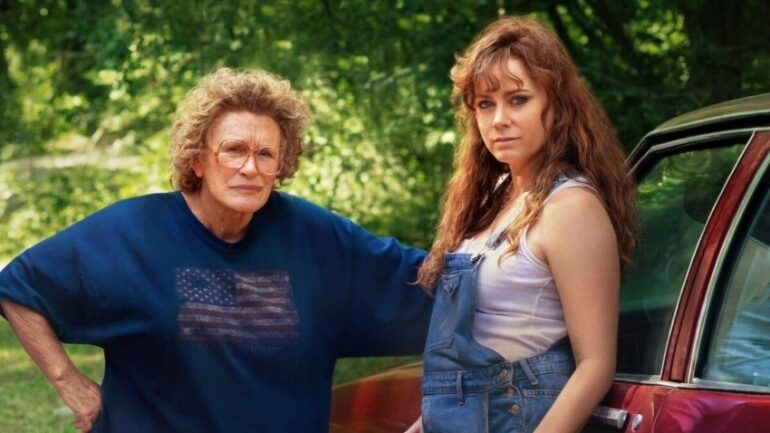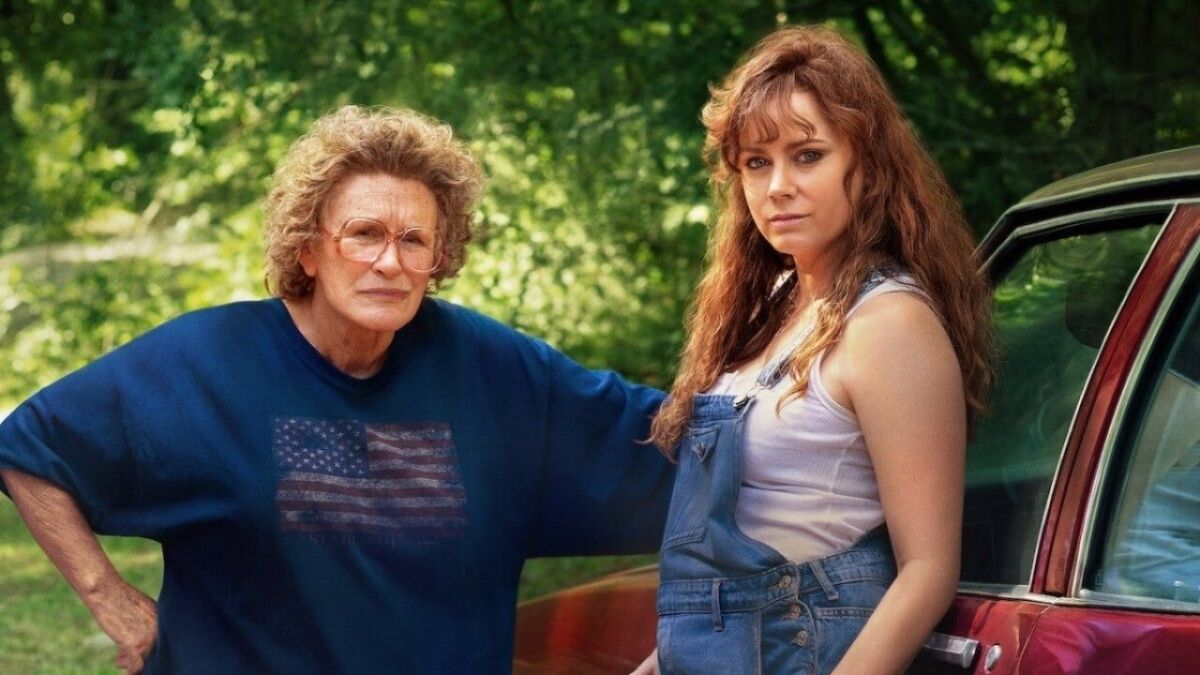Hillbilly Elegy focuses on J.D. Vance (Gabriel Basso), an Appalachian-born Yale Law student who returns to his hometown to care for his mother, Bev (Amy Adams), a former nurse and long-time drug addict. As he spends time with her and his sister Lindsay (Haley Bennett), J.D. reflects on his tumultuous childhood and considers his future — including his relationship with his grandmother, referred to as Mamaw (Glenn Close).
Sarcastic, politically incorrect, yet wise, Mamaw proved instrumental in J.D. breaking free from their family’s history of lost potential. What follows is a flashback-heavy drama that aims to showcase the hardships of rural America, but fails to explore its characters or their environment on a meaningful level.
That’s not to say the film isn’t well acted, well shot, or well scored. There’s not a single weak link among the performances. As an acting showcase alone, the film isn’t terrible. On the other hand, viewers could just watch select scenes on YouTube without watching the film from start to finish.
The main flaws of Hillbilly Elegy involve its empathy, or lack thereof, for the characters being portrayed. Indeed, by failing to adequately address the socioeconomic backdrop to the Vance family’s struggles, Hillbilly Elegy provides frustrating characterizations that fail to humanize.
Viewers watch Bev — volatile, yet still loving of J.D. and Lindsay — scream, fight, and relapse over and over and over again, with little time devoted to smaller, more intimate character-building moments. We don’t gain a full appreciation of why she thinks the way she does, or who she is as a real human being, but we certainly get to see her at her worst.
Scenes with Bev and J.D. feel dialed up to eleven — veering from upbeat to hair-raisingly intense in seconds. While this may be true to life, viewers have to endure this escalation so often that it proves tiresome and repetitive.
Sure, the portrayal works well for Adams, who gives a no-holds-barred performance that, at times, proves downright frightening. In terms of storytelling and character development, however, Howard’s film renders Bev exhausting to behold, glossing over the circumstances that helped build her mindset to jump straight to the awards show reel.
Mamaw is a similarly underdeveloped character that, thankfully, proves easier to watch. Close gives a fantastic, scene-stealing performance as a trash-talking, knowledgeable elder greatly concerned for her daughter and grandchildren. Although her backstory is conveyed through exposition dumps, and she doesn’t feature prominently until the film’s halfway point, Close’s scenes are consistently entertaining. Her uncensored comments are (unintentionally?) amusing, and her moments of ham-fisted moralizing don’t carry much emotional weight, but it’s refreshing to watch scenes that don’t involve people yelling so much.
By the end, when the last saccharine narration is spoken, the film’s message feels sanitized, to say the least. The takeaway revolves around taking responsibility for one’s life and not floundering due to circumstance — ignoring the fact that many people can’t change their life’s direction through sheer force of will alone. This Hollywoodized sentiment feels overly safe for the film’s hard-hitting subject matter, insisting on J.D.’s (and maybe viewers’ own) superiority by not falling into the traps that Bev and Mamaw fell into, even though they’re not solely responsible for the paths they took.
Ultimately, when you strip away the acting talent and the real people the story documents, viewers are left with a film that, sadly, sets itself apart for the wrong reasons entirely.
READ NEXT: 50 Best Zombie Movies of the 21st Century
Some of the coverage you find on Cultured Vultures contains affiliate links, which provide us with small commissions based on purchases made from visiting our site.


